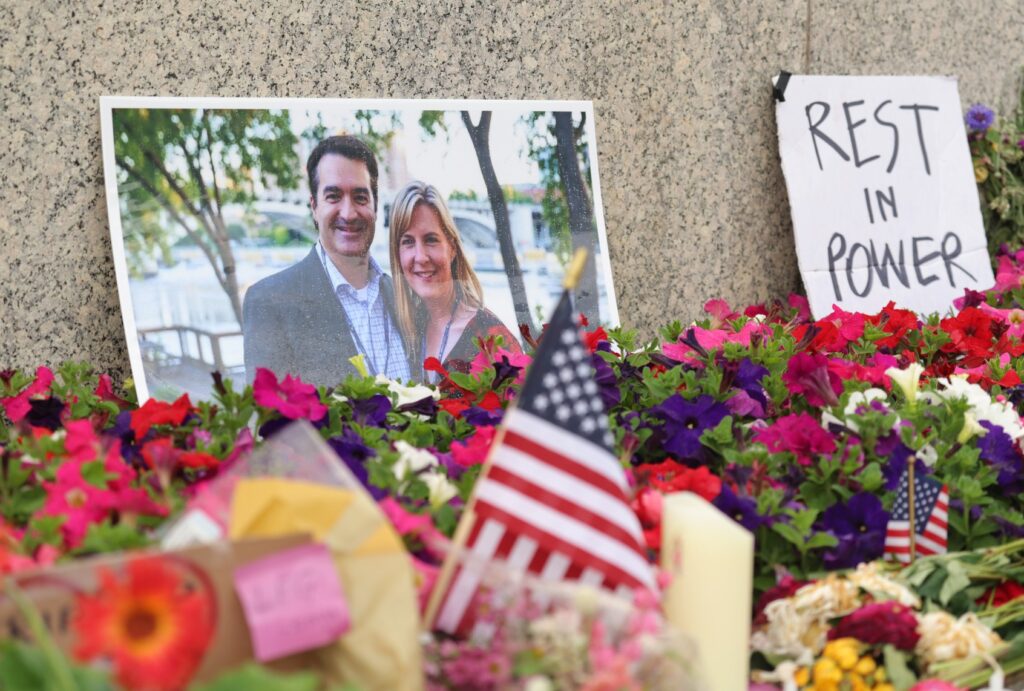
The tragic assassination of Minnesota state Representative Melissa Hortman and her husband, Mark, in June has reignited discussions on political violence in the United States. While much of the media characterized the attack as targeting progressive politicians, experts argue that the underlying issues related to gender and misogyny were overlooked.
Speaking at a recent event in Washington, D.C., Cynthia Miller-Idriss, a leading researcher in violence and extremism, highlighted the need to examine the gender dimensions of such violence. “They were progressive about gender issues, right? It was about reproductive rights and LGBTQ issues. So let’s talk about the gender part of that, not just the progressive part,” Miller-Idriss stated.
The individual charged with the Hortman shooting reportedly had a list of abortion providers and advocates for abortion rights, indicating a clear connection to gender-based hostility. As the founding director of the Polarization and Extremism Research & Innovation Lab (PERIL) at American University, Miller-Idriss emphasized that gender-based bigotry serves as a gateway to violent extremism.
Link Between Gender-Based Hostility and Violent Extremism
Despite the growing body of research, national security frameworks fail to adequately address the threat posed by misogyny. A 2018 report from the FBI on active shooters identified 22 warning signs, none of which included gender-related indicators. A year later, the Office of the Director of National Intelligence categorized violent domestic extremism into sections that neglected misogynistic violence, relegating it to a vague “other” category.
“Violence that is rooted in gendered issues is a huge predictor of — and possibly the biggest predictor, in some studies — of trajectories that lead to mass violence,” Miller-Idriss noted, pointing out that over half of mass shooters target partners. Research shows that incidents of mass shootings often coincide with domestic violence, with a study from 2014 to 2019 revealing that 59 percent of fatal mass shootings involved domestic violence dynamics.
Miller-Idriss asserts that intimate partner violence and violent extremism exist on a continuum of violence. By failing to include domestic violence and misogynistic attitudes in threat assessments, national security officials overlook critical factors that contribute to radicalization.
A Call for Change in National Security Approaches
The lack of integration between domestic violence and national security strategies contributes to this oversight. Miller-Idriss explained that domestic violence is typically addressed by the Department of Justice, while mass violence is categorized as a national security issue by the Department of Homeland Security. This separation hinders a comprehensive understanding of the connections between these forms of violence.
Miller-Idriss has dedicated her career to studying violent extremism in both Germany and the United States. Her recent publication, “Man Up: The New Misogyny and the Rise of Violent Extremism,” released by Princeton University Press, consolidates research that illustrates how misogyny recurrently manifests in the history of violent extremism.
Her perspective encompasses a broad definition of misogyny, which includes anti-LGBTQ+ beliefs, characterizing it as “the hostile enforcement of patriarchal norms and expectations.” The link between gender attitudes and radicalization often remains understated, yet it plays a significant role in pushing individuals toward extremist actions.
To combat the cycle of political violence and violent extremism, Miller-Idriss advocates for proactive measures at both the individual and institutional levels. She encourages communities to address hostile sexism by engaging young people in discussions about the gender narratives they encounter online and in media.
PERIL has developed resource kits aimed at parents, educators, and community leaders to help combat radicalization and gender-based bigotry. “Talk to kids about gendered grievance narratives and propaganda that comes across their phones,” she advised, emphasizing the importance of making these conversations relatable rather than preachy.
Addressing hostile sexism could play a crucial role in mitigating the risk of political violence in society. By recognizing the connections between gender-based attitudes and violent extremism, experts argue that communities can take meaningful steps toward creating a safer environment for all.







